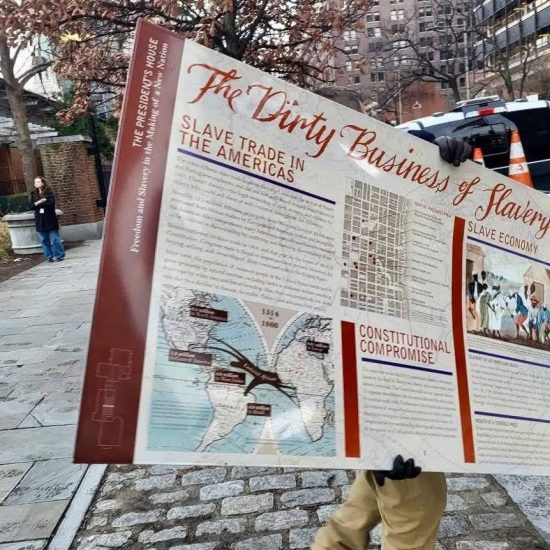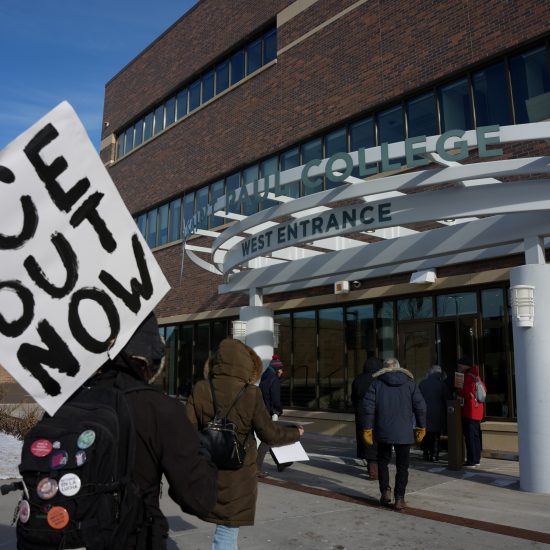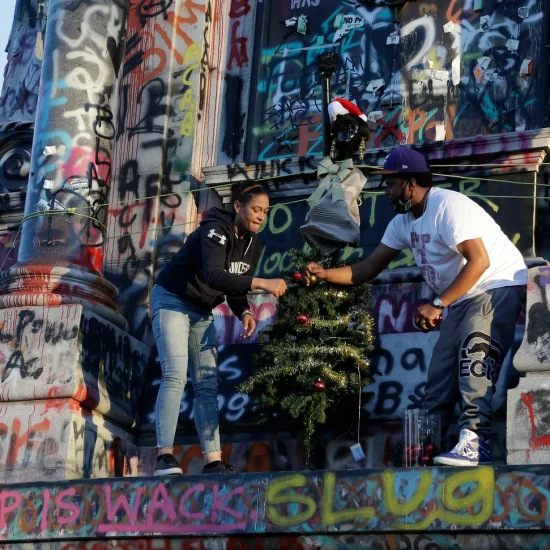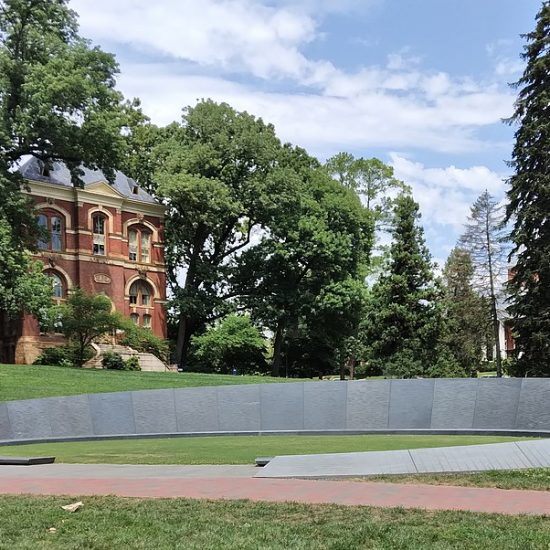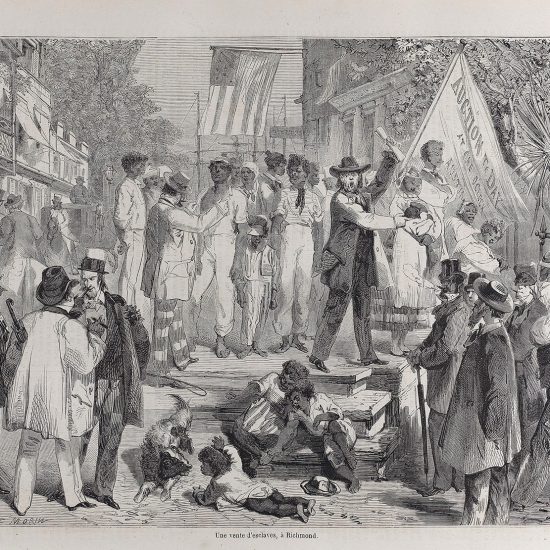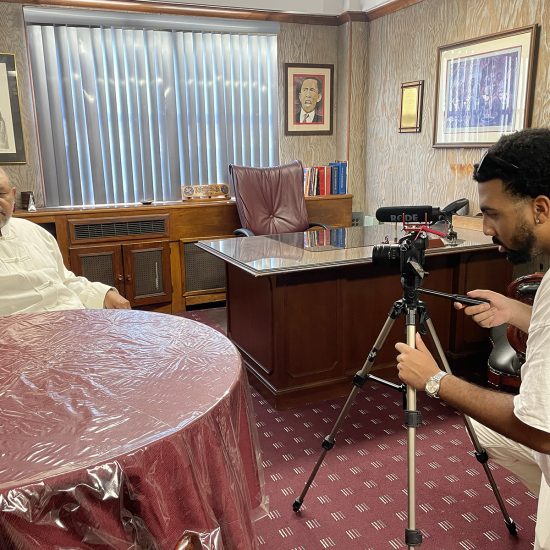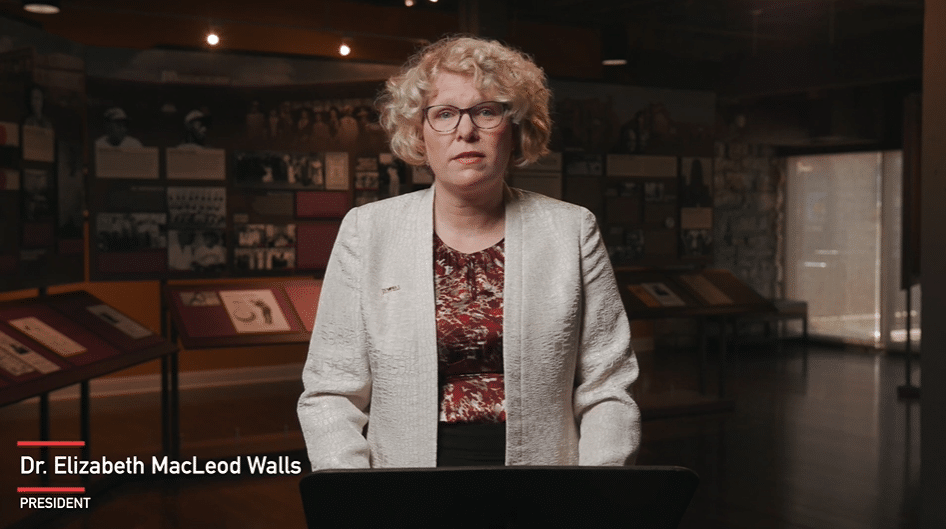
William Jewell College, a historic Baptist school in Liberty, Missouri, announced the creation of a “Racial Reconciliation Commission” Monday (April 12) to document the school’s ties to slavery and explore future steps in response. The move follows similar studies by other schools, including Baylor University in Waco, Texas, that recently released its commission’s report.
“It is time that we address and speak into our history as an institution of higher learning founded in 1849 by landowners, many of whom migrated to western Missouri from the American south,” WJC President Elizabeth MacLeod Walls said in a video announcement.
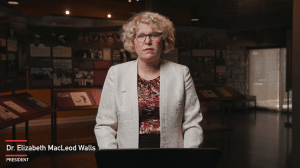
Screengrab of Elizabeth MacLeod Walls, president of William Jewell College, announcing the formation of the school’s “Racial Reconciliation Commission.”
She said the new commission would “seek to find and express both a historical and moral truth about the racial history of William Jewell College, spanning the years of our founding until today. This will include acknowledging that many of our founders were slaveholders, and it is likely that we will discover that enslaved people worked on our campus.”
“These are historical facts that we cannot change,” MacLeod Walls added. “But we can and we will give our community the space through this year-long initiative to recognize and understand how our past informs our present and how it will shape our future.”
Rodney Smith, WJC vice president for access and engagement, will lead the commission. He noted that Andy Pratt, dean emeritus of the Chapel, Chris Wilkins, associate professor of history, and some of Wilkins’s students already started the research.
“This research is not only pivotal to the Jewell community but can provide insights into the American life of yesteryear while helping us to connect the dots of our contemporary issues around race,” Smith said in the announcement.
Bill Gautreaux, chair of the WJC Board of Trustees, said during the video, “By acknowledging our past, we embark on our journey of being the best version of ourselves that we can be.”
The three appeared in the video filmed at the Black Archives of Mid-America in Kansas City along with the director of that institution. The Black Archives, led by Carmaletta Williams, will add the findings to its archives.
The Black Archives is currently creating an exhibit of jars with soil collected from lynching sites across Missouri during the period of racial violence in 1877-1950. Several of the more than 60 jars have already been filled at soil collection ceremonies.
As WJC starts its commission process, numerous other private and public schools across the country have already finished their reports. Among historically Baptist institutions that issued reports on slavery ties are Baylor University, Furman University, and Southern Baptist Theological Seminary.
Word&Way Editor-in-Chief Brian Kaylor urged WJC to start this process back in 2019. He encouraged the school to not only document its slavery ties like other schools but also to “find the moral courage to go further and pay reparations.”

